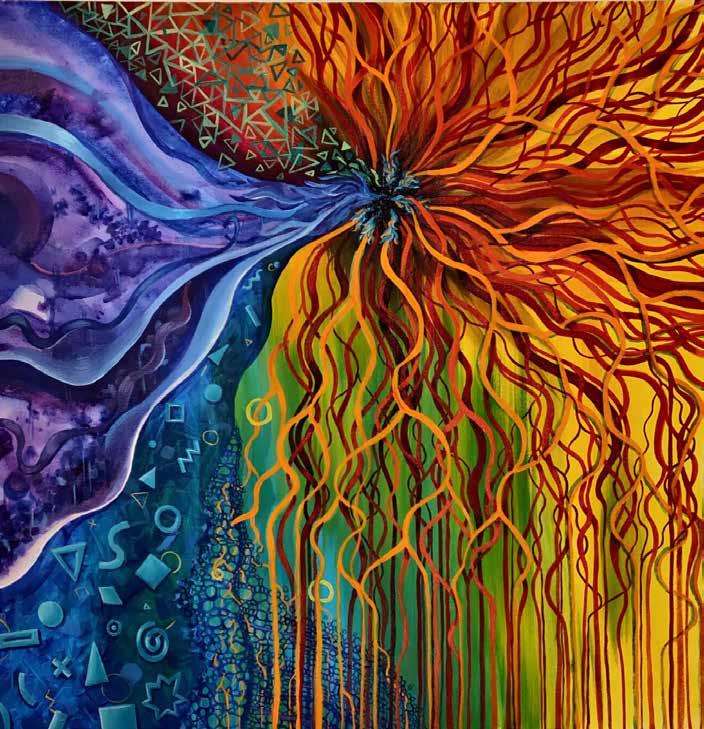
2 minute read
Letter from the editor
The president of Spectrum reflects on how COVID-19 has impacted the queer community
By Brad Moir, president of Spectrum
A lot has changed over the past year.
At first, many of us thought the coronavirus pandemic would be taken care of in a timely manner, that in a few weeks, things would be back to normal. But what is “normal”?
We live in a society that is ever changing, in some ways for the better, yet normal seems to always find its place. Normal is a subjective term, while an overarching understanding of what it means to be normal exists, being normal can look a little different for everyone. Queer people have and continue to be viewed as not normal — though that has not stopped us yet.
The pandemic has been difficult for so many people: lives lost, lack of governmental aid, isolation and more.
Those who compose marginalized groups have faced substantial blows. When someone gets knocked down, many people would say they just need to get back up. Imagine how difficult it would be to get back up if a dozen people were holding you down.
That is the reality for many folks.
These people holding you down are barriers and systemic inequalities that exist in our society. We can say our society is progressive, but is that really the case? Sure, there have been improvements over the years but at the end of the day it is still an inequitable society.
For queer people, a sense of community and belongingness is incredibly important. Community is what unites us, inspires us and comforts us. COVID-19 has drastically altered what this sense of community looks and feels like.
We may still be able to connect via FaceTime or Zoom, but it is not the same. There is something special about physically being with people who are like you — people who can understand and relate to the struggles you have endured, people who have felt the pain one feels when they have been ridiculed, tormented and outcast for being themselves.
Some folks have had to move back home with their family, potentially a family that does not support or understand them. An individual’s chosen family, can be so important to their well-being and many are not able to be together.
So many people feel alone. But, the beauty of a community is that you are truly never alone. Whether we are in the same room or on other sides of the world, we are a community.
To those who feel that they have no one who cares about them, values them or loves them: you are not alone. You may not explicitly see it, but there is someone in your corner. I am in your corner. We may not know each other yet, but you are not alone. You are valid, you are unique and most importantly, you are loved.
In a society that tries so hard to invalidate us, to shame us and to tear us apart, we have yet to let it happen — and we don’t plan to start.
COURTESY OF BRAD MOIR







